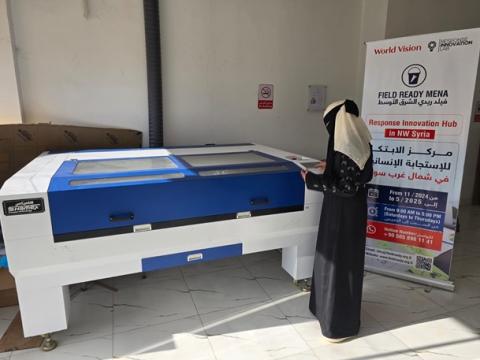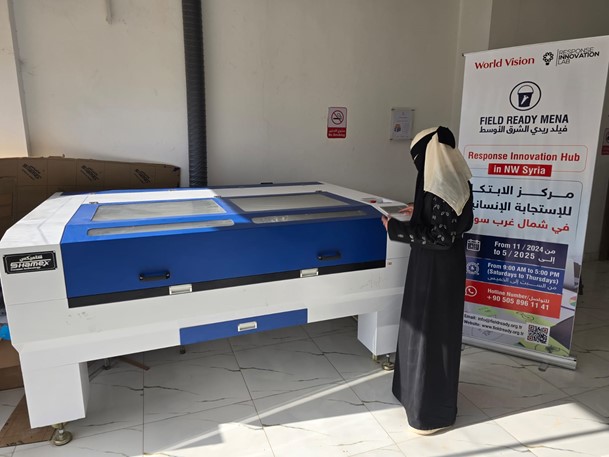Rebuilding the Future: How Layal is Shaping Education in Post-Conflict Syria Through World Vision’s Innovation Lab

Rebuilding the Future: How Layal is Shaping Education in Post-Conflict Syria Through World Vision’s Innovation Lab

After 14 long years of devastating conflict and relentless attacks on educational facilities, Syria is finally beginning its slow journey towards recovery. Despite the hardships, a whole generation of young Syrians is hungry for innovation and remains driven by hope. Among them is 20-year-old Layal, an example of resilience and ambition.
A second-year university student in Aleppo, Layal is studying Elementary Education with a focus on modern teaching methods. In addition to her studies, she works part-time as an elementary school teacher—a role that fuels her deep belief in the transformative power of education. This belief led her to the Fab Lab project launched by World Vision Syria Response and funded by World Vision Hong Kong.
Launched in March 2024 and continuing through February 2026, the Fab Lab empowers Syrian individuals and local organizations to develop innovative and practical solutions to everyday challenges. Through hands-on workshops, participants identify local problems—like gaps in education—and collaborate to create impactful, tangible solutions using cutting-edge tools.
Energized by the recent political shift following the fall of the Assad regime, Layal felt a new sense of possibility. “This change gave us a glimmer of hope. We have been estranged from our villages for years, and I dream of rebuilding my country,” she said.
Motivated and inspired, Layal reorganized her life to embrace this opportunity. Spending her mornings at university, afternoons teaching, and weekends at the Fab Lab workshops—she is committed fully realizing her vision. In her very first session, joined by 18 other aspiring innovators, Layal was truly amazed.
“As soon as I entered the Fab Lab center, I felt like I stepped into the future! I saw tools I had never seen before,” she recalled with excitement.
During brainstorming sessions with other educators, recurring problems surfaced: students using outdated textbooks with missing pages, and a lack of visual learning aids like maps or flashcards. Determined to make a difference, Layal had a spark of inspiration—why not use the lab’s 3D printer and laser cutter to create new teaching tools?
“Children need things they can touch and feel in order to learn,” she explained. Her idea: create 3D-printed educational materials—starting with tactile geographical maps—and make them accessible to underserved schools.
From that spark, the youth-led "Learning Tools from Scrap Initiative" initiative was born, aiming to repurpose low-cost, recycled materials into engaging learning aids. Layal plans to distribute these tools to three schools in Azaz, Syria. Afterward, she hopes to measure their impact on student engagement and learning outcomes, using the data to improve future designs.
But like many great ideas, hers needs support to become reality. Layal requires funding for essentials—threads for the 3D printer, wood and acrylic for laser cutting, and adhesive materials to bring her prototypes to life.
Layal’s journey from student and teacher to innovative changemaker is a testament to the untapped potential of Syrian youth. Projects like World Vision Syria Response’s Innovation Fab Lab, are more than just programs—they are lifelines of hope and progress.
By investing in initiatives like these, we aren’t just supporting individuals like Layal. We’re laying the foundation for a brighter future in Syria—one where youth are empowered, education is reimagined, and innovation leads the way.